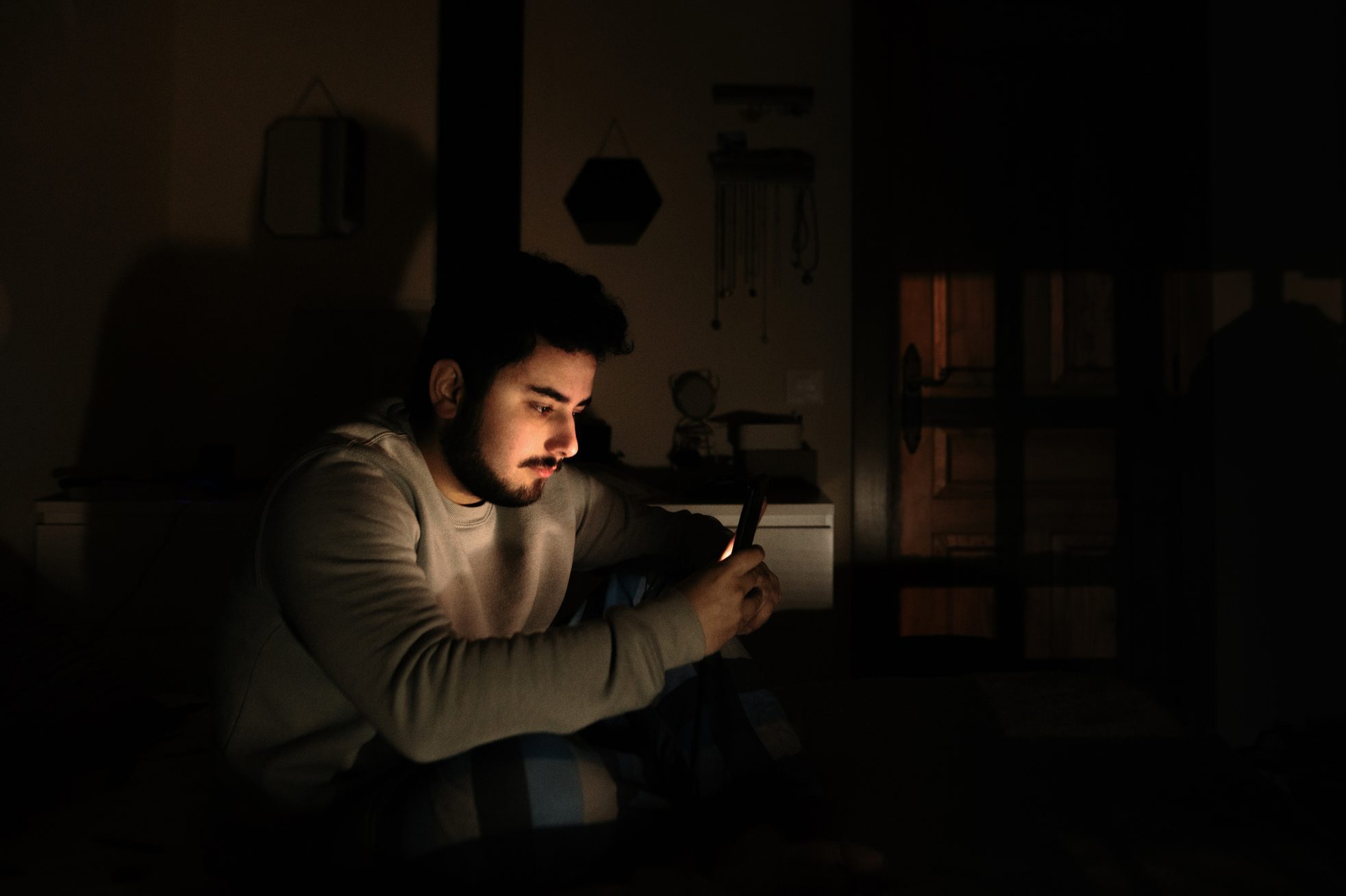Revenge Bedtime Procrastination—Is This Keeping You up Late at Night?
Updated: Jun. 07, 2021
If you delay sleep in favor of bingeing TV or browsing social media, you may be a bedtime procrastinator. Here's what that means—and how to make yourself go to bed.
When you put off going to sleep
Raise your hand if you regularly find yourself scrolling through your favorite social media sites while lying in bed or catching up on the news long after you were supposed to go to sleep. You’re not alone. Plenty of adults deal with what psychologists call “revenge bedtime procrastination.”
If you’re like most people, you chalk up your late nights to taking a little time to unwind before falling asleep. But psychologists say there might be more behind your nightly activities than you think. They call it “revenge bedtime procrastination” and it can lead to sleep deprivation and other issues connected to a lack of sleep: memory loss, lack of alertness, a weakened immune system, and even some mental health challenges.
Revenge bedtime procrastination
The Sleep Foundation describes revenge bedtime procrastination as going to bed later than planned without a practical reason for doing so. Ultimately, you decide to sacrifice sleep for leisure time.
A study from researchers in the Netherlands described bedtime procrastination in 2014 in Frontiers in Psychology. The concept spread like wildfire and eventually made its way to the United States in the summer of 2020, when writer Daphne K. Lee tweeted about it.
You’ve grasped the bedtime part. And it’s pretty clear you’re procrastinating sleeping. But where does revenge come in? The answer to that intrigues psychologists.
It seems people who do not have much control over their time during the day stay up at night to regain a sense of control and freedom. It’s a sort of subconscious form of revenge, if you will. Terry Cralle, a registered nurse and certified sleep expert with the Better Sleep Council, says sleep scientists are fascinated because what appears as a simple coincidence might have deeper psychological roots.
How do you know if you’re a revenge bedtime procrastinator?
You might be guilty of bedtime procrastination if you:
- Suffer from a loss of sleep due to frequently delaying your bedtime
- Delay your bedtime for no apparent reason
- Continue to stay up past your bedtime despite knowing it could lead to negative consequences
Janelle Watson, a licensed marriage and family therapist and owner of Embrace Wellness, stresses that we shouldn’t confuse bedtime procrastination with staying up late to do work or to finish homework. Those are both reasons to push your bedtime back, but when you procrastinate sleep you don’t check items off your to-do list.
“The subconscious psychological goal of revenge bedtime procrastination is to take back control over your time,” says Watson. Bedtime and sleep procrastination tends to include activities that provide immediate enjoyment, such as watching Netflix, reading, talking to friends, or surfing the Internet.

The psychology behind revenge bedtime procrastination
Revenge bedtime procrastination is still an emerging concept in sleep science, and there are ongoing debates about the psychology behind this behavior. But the truth is, Americans aren’t getting enough sleep.
Although the Centers for Disease Control and Prevention (CDC) recommends that adults 18 and older get at least seven hours of sleep per night, a 2013 Gallup poll found that 56 percent of adults don’t get a full night’s sleep, and 43 percent said they would feel better if they got more sleep.
So why are some of us making a deliberate decision to fan the flames of our groggy mornings and sleepy workdays? According to Watson, the answer to that question is “at the root of revenge bedtime procrastination.”
Studies suggest that Americans’ time management has become increasingly complex for various reasons, including changing and unpredictable work schedules and gender, class, and race inequalities.
“Although work schedules are a huge contributing factor to revenge bedtime procrastination, some of my clients are also bogged down with tight schedules with their children, family, and other roles and responsibilities that take away from their ‘me’ time during the day,” Watson says.
Who is most likely to procrastinate going to bed?
Watson says that people who procrastinate when going to sleep typically want to get a full night’s rest but are not successful.
Sleep experts refer to this as an intention-behavior gap that is sometimes caused by self-control or self-regulation challenges. Self-control is typically at its lowest by the end of the day, making it easier to give in to the temptation of self-indulgence.
While most people have the best intentions when it comes to getting a full night’s sleep, studies show that you might be more likely to procrastinate going to bed at a reasonable hour if you:
- Procrastinate in other areas of your life
- Work a high-stress or an otherwise demanding job
- Find yourself having to “resist desires” during the rest of your day
- Work in an environment that requires your work life to intersect with your personal life or that does not allow you time to de-stress after work (like working from home)
- Are a woman or a student
How to address revenge bedtime procrastination
If you think you might be a bedtime procrastinator, experts suggest seven ways to get to bed and start getting some much-needed rest:
- Be intentional about your rest. “If necessary, schedule your sleep by setting alarms, television timers, and other devices to alert you when your bedtime is near,” Watson says.
- When possible, begin winding down 30 minutes before your bedtime.
- Create a realistic bedtime goal that considers your daily schedule.
- Turn off all electronic devices and put any sources of distraction out of your reach after getting into bed.
- Practice relaxation strategies such as mindfulness and mediation.
- Get at the root cause of the issue by developing healthy coping strategies to handle your stress throughout the day.
- If all else fails, talk to a therapist.



















